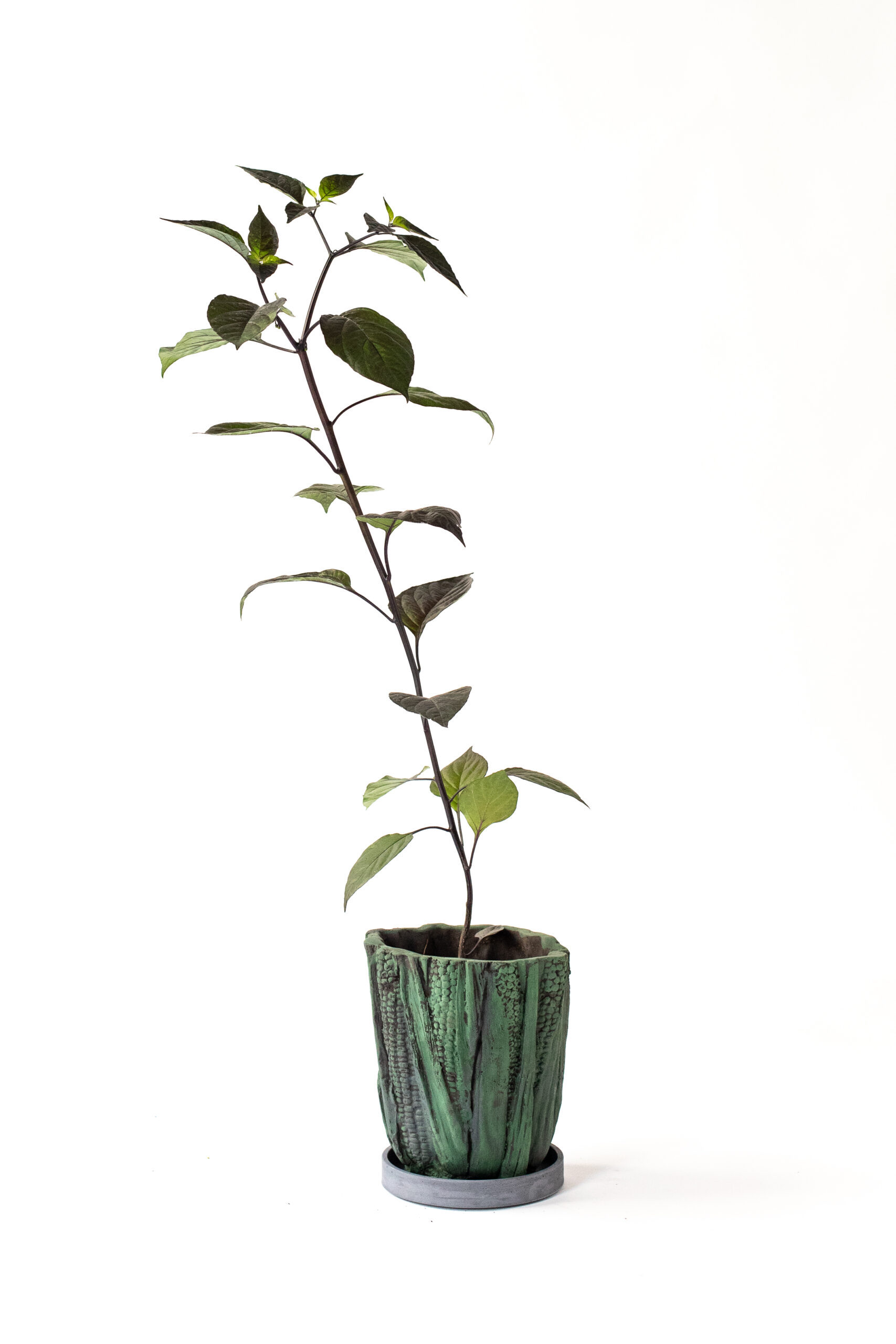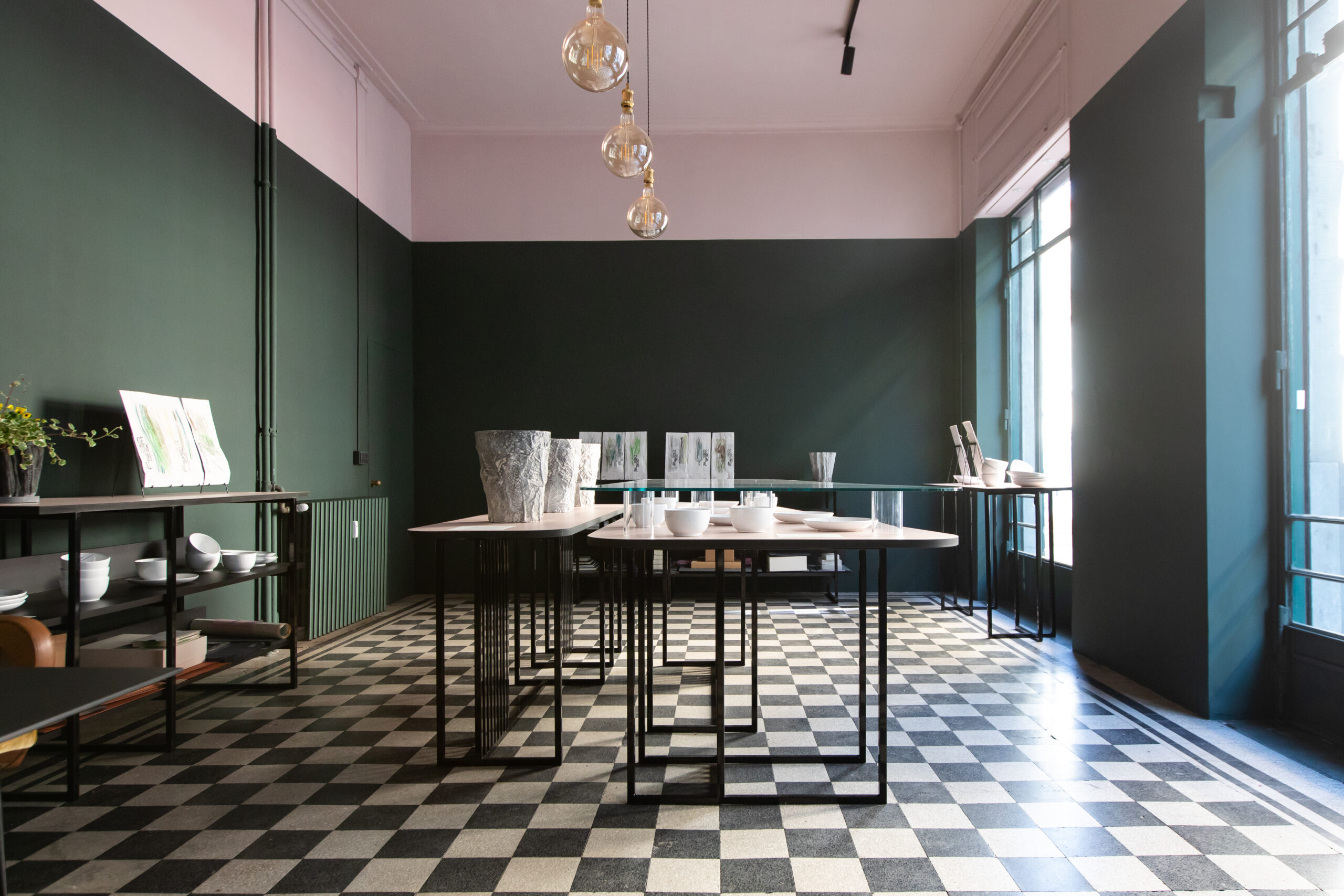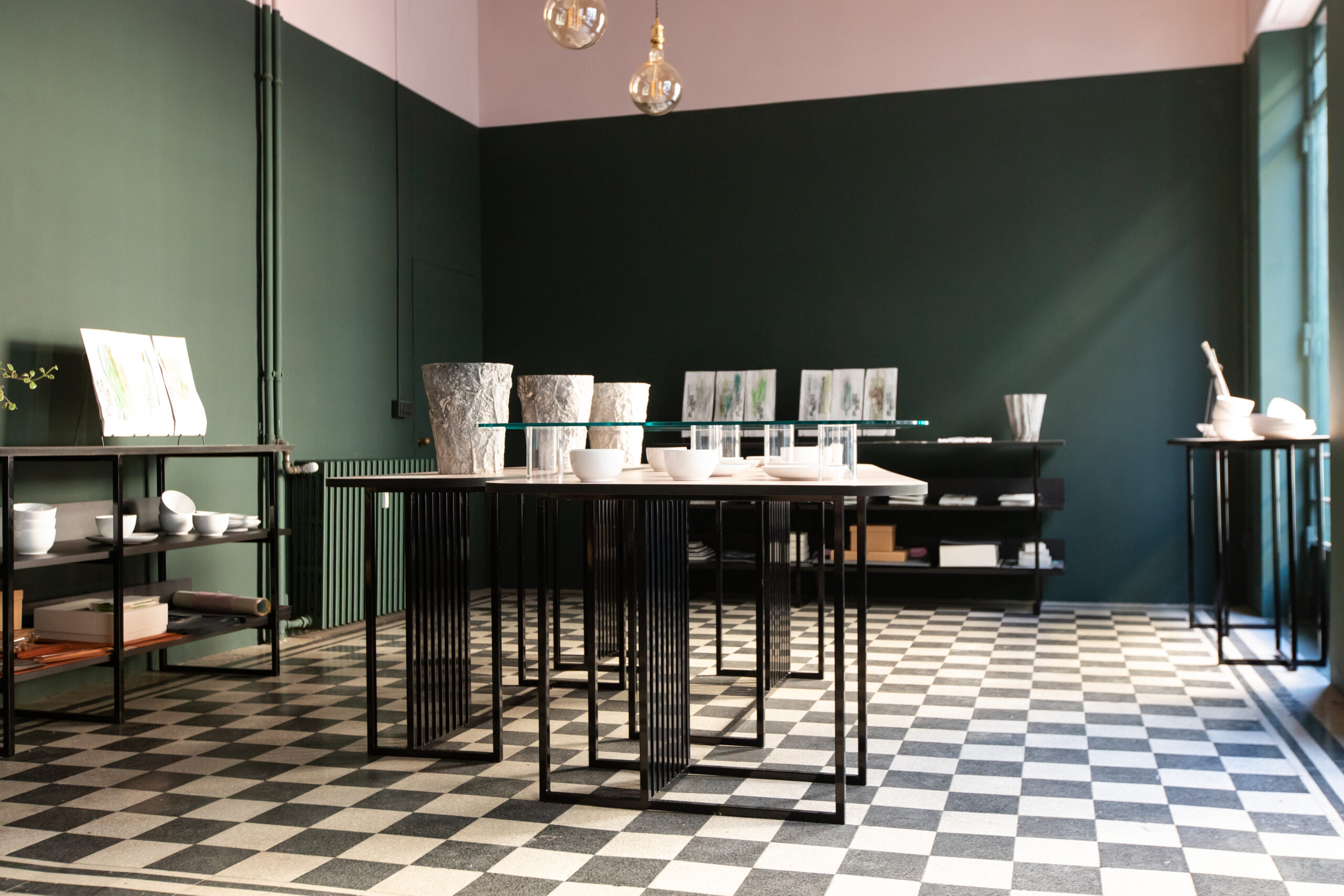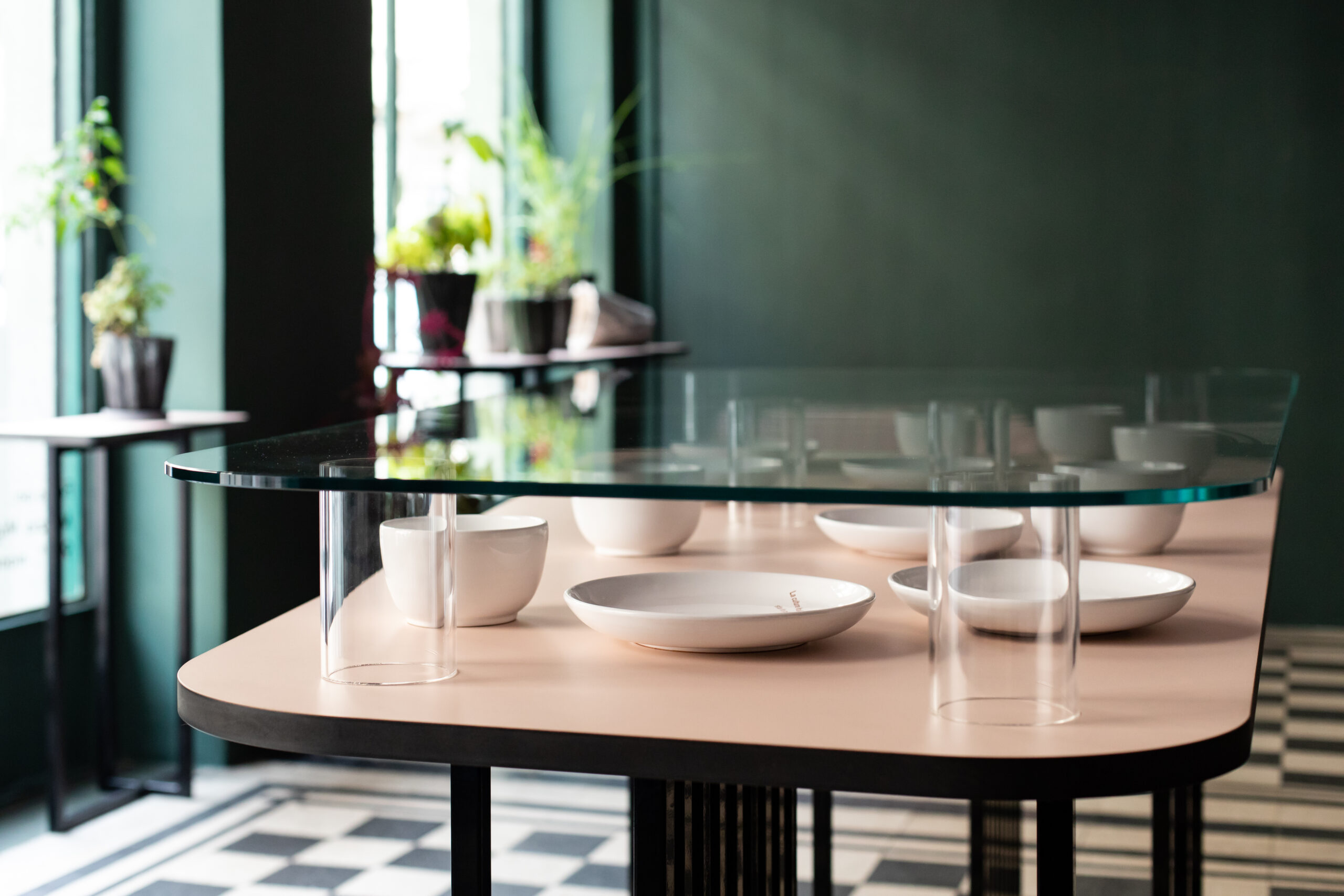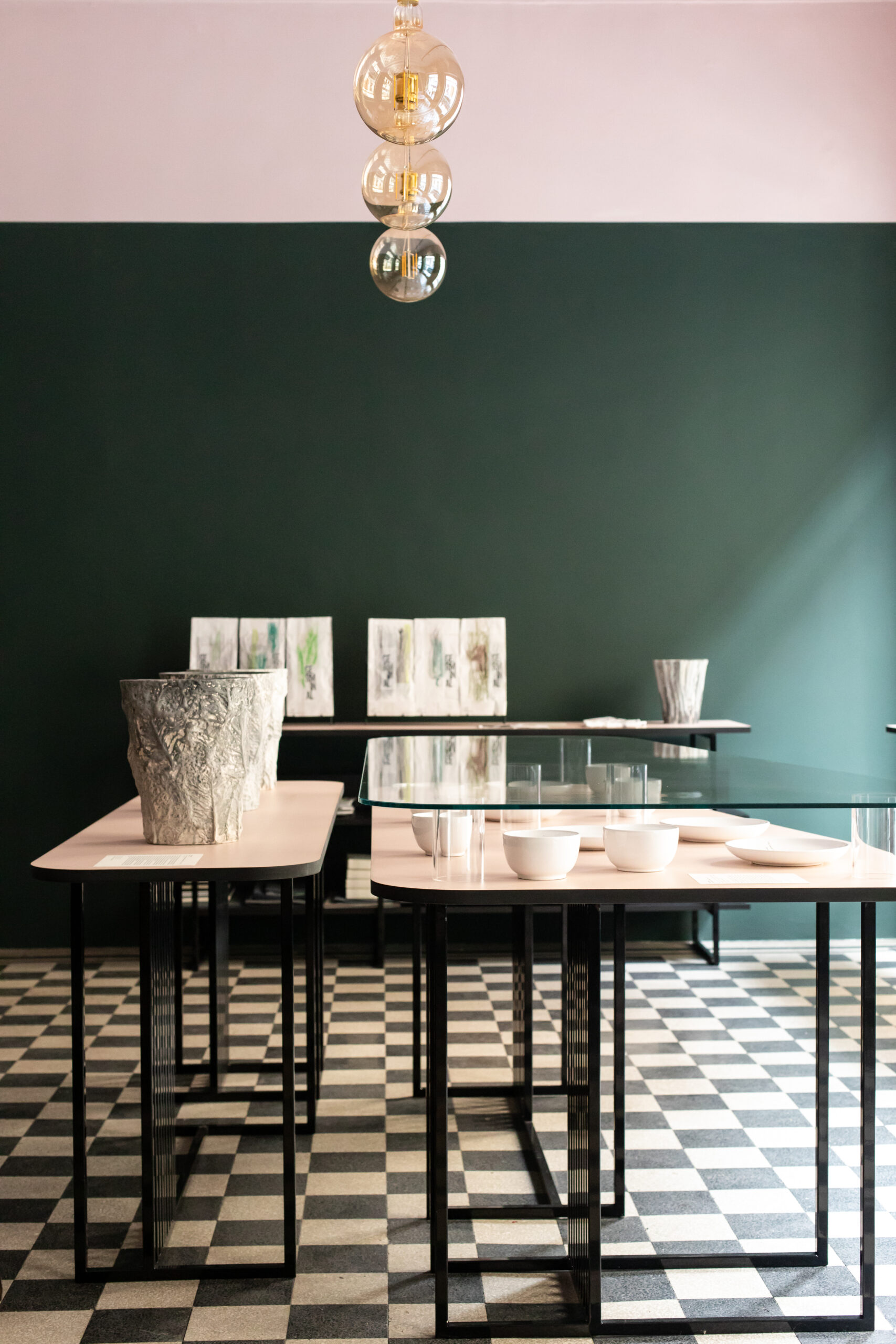14.09.2021 – 16.10.2022
The title, 980°, artifacts to bring into practice, includes three projects: Con la cultura non si mangia (You can’t live on culture) (2013 – 2021), Germinal (2020) and a new experiment with terracotta entitled 980° (2021). All are related to one of the key themes in the artist’s research: the relation between man and the earth, which, thanks to the work of farmers, has always been grounded in the production of food.
“For years the Earth has been at the center of my research as an object of economic speculation and exploitation (and as one of the key issues most linked to the capitalist accumulation of money) in all its forms: animal, mineral, vegetable and human. I find it very interesting that we use the same word for our planet and for the soil we walk on, cultivate, and often, rape.”
Germinal (2021) is an edition of 300 unique pieces, in which the artist places on the same conceptual and practical level the cultivation of land and artistic research, highlighting how art and agriculture share nourishment, waiting, caring, growing, working and life. One is nourishment for the body, the other for the mind. Each of the 300 pieces that constitute Germinal is composed of several parts that are the result of numerous collaborations of excellence: a flour bag with original frottage on a vegetable theme created by hand by the artist; a booklet edited by graphic designer Paolo Prossen correlated by photographs taken by Bepi Ghiotti at Orti Generali (Turin); a bag of ancient grain seeds to plant, the result of a collaboration with Casa delle Agriculture (Castiglione d’Otranto, Lecce); a T-shirt to wear and collect. The T-shirts, made of certified organic cotton and assorted in six types of split-fountain silkscreen prints, are unique as each has been hand-embroidered by women of the Casa di Reclusione femminile della Giudecca di Venezia (Female Detention Center in Giudecca, Venice), coordinated by the project Closer.
Food, a product of Earth’s gratuitous generosity, and its exchange are the subject of the project Con la cultura non si mangia (You can’t live on culture) (2013 – 2021), a series of plates and bowls in white majolica, turned on a lathe, which become tools that provoke discussions among diners. The project is inspired by the lapidary sentence with which Giulio Tremonti, the former Italian Minister of the Economy, justified spending cuts on culture, research and education. Each plate and bowl bears a quote from a politician’s speech on the subject of culture. The table becomes the theater of a hypothetical parliament, animated by an open dialogue where opposing points of view alternate. Marzia Migliora invites us to position ourselves on the benches so that we can take sides and discuss the issues brought to the table. Culture is ironically served on a plate as if it were a meal and the project compels us to consider it on the same level as food, a primary nourishment for the human mind.
With 980° (2021), Marzia Migliora ideally opens the doors of her studio to the public to show some prototypes of planting pots. These are part of a new experiment with terracotta obtained from a mixture of pigments and earth from cultivated land in Orta di Atella (CE), a town located in the “Terra dei Fuochi” (“Land of Fires”), a vast area contaminated by the burial and combustion of toxic waste in Campania, between the provinces of Naples and Caserta.
The project comprises of the artist’s personal take on the historical French ceramics Barbotines (1500-1600), characterized by the typical relief shapes based on naturalistic subjects and decorative plant themes. The formal aspect of the vases is the result of molding and casting, in real size, three edible vegetables: hunchback cardoon, savoy cabbage and corn.
980° requires to be brought into practice with an act of regeneration and care: the vases, equipped with a hole for the percolation of water, have been specifically designed as containers capable of allowing new living matter to take root and sprout from within, by means of soil, a plant organism and, when necessary, water.
The shape of the vases replicates the features of edible vegetables and were made starting from a mixture of potentially contaminated soils, then dehydrated by being fired in kilns at a temperature of 980 °C. The structural and conceptual elements of the project respond to the intention of showcasing the inextricable relationship between the food that we eat, the earth that produces it, and how its abuse has led to emergencies such as the desertification of vast areas of the planet, one of the consequences of global warming.
980° wants to leverage the productive cycle of food, emphasizing how everything that is buried, mixed, sprayed, distributed, and incorporated into the earth, as in a macro digestive system, is metabolized by that very same earth and returned to us in the form of new living organisms: food, which we cannot live without. Not respecting the earth means not nurturing respect for ourselves.








